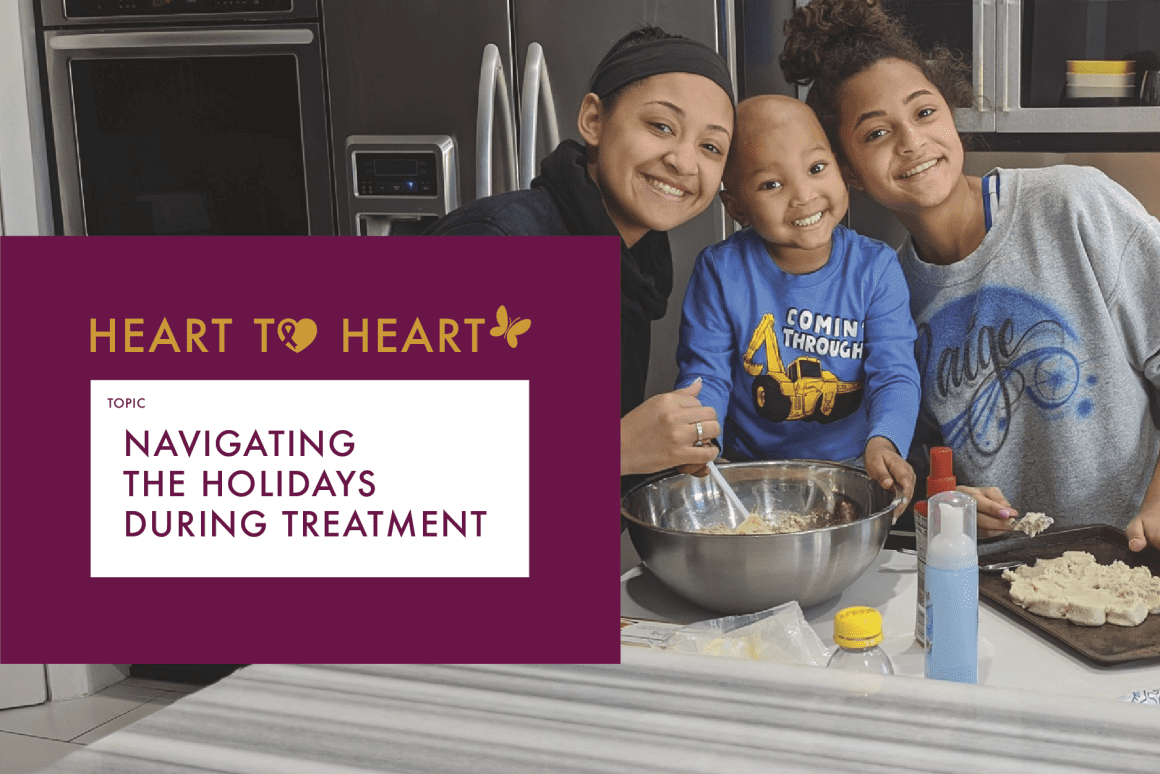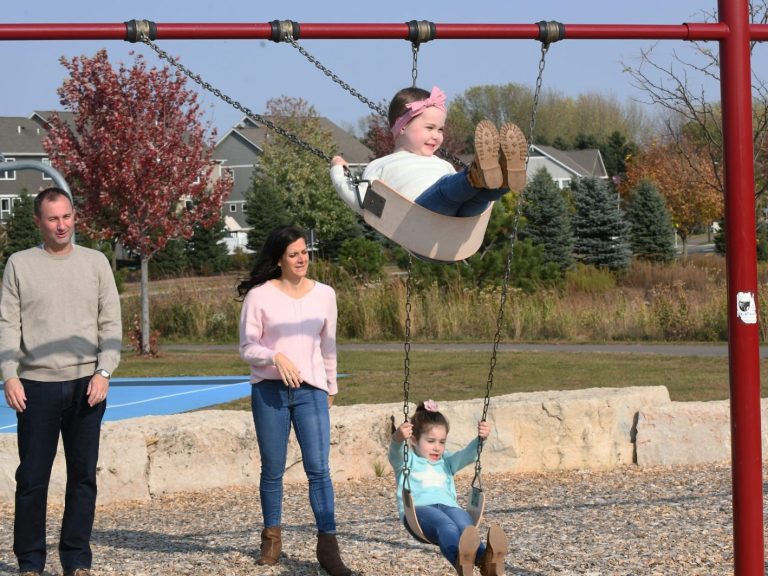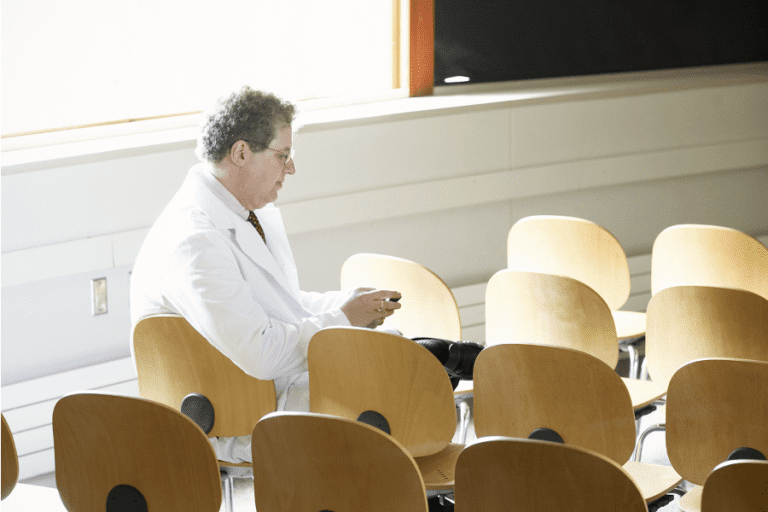When a loved one is going through cancer treatment, the holidays look a little different. Maybe you have always hosted Thanksgiving dinner, but this year you’ve been overwhelmed helping your child through treatment. Perhaps your friends meet up to take their kids ice skating on New Year’s Day, but your child’s treatment has left them too weak to go this year. During a time of traditions, it can be difficult to “celebrate as usual” while balancing the health needs of your child. Children’s Cancer Research Fund teamed up with Momcology to ask cancer caregivers what advice they have for navigating the holidays during treatment. Their insightful answers are below.
How to navigate emotions
For kids and families affected by childhood cancer, the holiday season can bring a mixture of emotions. You might be wondering how to uphold holiday traditions, handle the added stress and social invitations that come with the season, or remain positive and optimistic. To get the most enjoyment out of the holiday season, you may consider:
- Your child’s physical limitations brought on by current or past treatment. Plans may change in the blink of an eye based on how your child is feeling. It’s important to give yourself and your family grace when last-minute changes pop up and you have to reschedule or cancel plans.
- Acknowledging your own feelings as they change. If you’re in a joyous moment and you can’t enjoy it, take a step back to check in with yourself. Try focusing on small moments in the present that spark joy, but feel free to allow yourself time to cry and reflect if you need to.
- Identifying what makes you feel good. It’s easy to fall into the trap of feeling obligated to accept every invitation or fulfill every expectation. Do not overexert yourself on travel or physical activities that you are not ready to take on or that you won’t enjoy.
“I would prepare for and allow myself a day or two of tears around a sad book or movie (usually cancer-related). I found it cathartic to let it out and process the changes I was feeling in my life. Those were really hard days.” – Kim
“Our first holiday (after receiving a cancer diagnosis) was the Fourth of July and Connor was inpatient going through intense chemotherapy. We were just so sad that we weren’t going to participate in the traditions that we usually had for our family. The feeling of unknown was something I was thinking and feeling a lot. Holidays are a very emotional time of the year as it is, and there can be very positive emotions and very dark emotions because everything is magnified.” – Mindy
“I experienced absolute crippling fear because I had thought ‘what if this is the last one?’ In that context, it’s difficult to have the perfect Thanksgiving and the perfect Christmas. What makes the holidays perfect is that you’re together, and it’s not about if the house is decorated perfectly or if the turkey is delicious.” – Leila
How to navigate old and new traditions
For families who are navigating cancer treatment, old traditions may feel overwhelming and simply not possible for where they are in their cancer journey. Some families even find new traditions that become more meaningful and manageable for them.
- Start a new tradition. There is no ‘right way’ to celebrate when it comes to the holidays. It’s okay to say no to old traditions if they no longer work for you and your family. You may consider asking your friends and family to video chat rather than gathering in person. Or you decide you’d rather plan a fun trip and go somewhere you have never been before.
- Ask friends and family for help. If you’ve always hosted the gathering at your house, consider asking another family member or friend to take it on this year.
- Make a simple plan. Recognize tasks that cause stress, like shopping or preparing a meal, and plan to simplify it. Maybe you prefer to shop online rather than traveling to the store. Allow yourself to take small steps to complete tasks and give yourself grace if they don’t all get done.
“We decided that experience together was better than gifts and we spent the first year with no gifts and went to Disney World. The next year during COVID, we spent our time in a rented home in Florida in our pjs, watching Christmas movies and spending quality time together. For us, the big change has been no presents and quality time together. It’s been helpful for me to see that (our kids) cherish the quality time together even as teenagers.” – Beth
“I started a ‘thankful leaves’ basket with my family. I put blank paper leaves in a basket with a pen. Every day, each family member would write things they were thankful for on the paper leaves. Both big things and small t things. On Thanksgiving, we would spread the leaves out to decorate the table before our meal together. It has become one of my favorite traditions.” – Kim
“Our New Year started with radiation and chemo on January 7. From this, we learned that having our ‘own traditions’ mean more to us than the big extended experiences. We learned that we didn’t need to cave to the pressures of always saying yes. We learned that family doesn’t always have our best interest at heart. We learned that we could survive the worse and still be a family. We have a ‘new normal’ for the holidays and I wouldn’t change it for the world.” – Liane
How to navigate the holidays during treatment for the first time
Because the holidays have so many emotional connections and memories, it’s common that families facing childhood cancer worry about what lies ahead for them. While it may be easier said than done, try focusing on:
- Putting yourself and your family first. Open communication is important when it comes to planning ahead to prioritize what is most important to your immediate family. If a certain commitment feels like it’s going to be too much for one family member, consider taking a step back to reevaluate what feels best for everyone involved.
- Not blaming yourself. Things out of your control are not your fault. Be mindful of any self-blaming thoughts and put those aside. Focus on things that you can actively control.
- Getting support. If it’s helpful, make a list of family members and friends you can count on if anything unexpected happens that you weren’t prepared for. If you’re ever feeling overwhelmed or anxious, call someone on your list for support.
“Set the bar low. Who cares how the meal is? The pieces don’t need to be perfect. Cancer or not. If it stresses you out and doesn’t give you peace or joy then just don’t do it.” - Leila
“I simplified and really focused on the people inside my house. The traditional things didn't have to be the biggest or the best, but we still did them. I also made sure I had one night to go out with my spouse in a glittery holiday top. That still makes me smile.” – Kim
“We do matching pajamas, hot cocoa and Christmas lights on random weeknights. It’s one tradition that is cancer friendly.” – Lynsey
“Give yourself permission to do things that are right for you. It makes the holidays more intimate and fun.” – Mindy
Whatever this holiday season may look like for you and your family, remember to give yourself grace and do what works best for you and your loved ones. It is perfectly fine to acknowledge limitations and modify traditions. If you allow yourself to let go of expectations, you may find joy in new places.
For more information on how cancer may change holiday traditions, visit https://childrenscancer.org/how-cancer-may-change-holiday-traditions/
Additional source: 8 Tips to Cope with Cancer During the Holidays was originally published by the National Cancer Institute
About Momcology
Momcology, in partnership with Children's Cancer Research Fund, is working to create meaningful content that raises awareness about what families face while going through childhood cancer. By combining CCRF's authentic storytelling capabilities with many voices and experiences from within the Momcology network, we are eager to provide a new platform to amplify caregivers' voices to the public to both accelerate research and raise awareness. Visit Momcology to learn more and join their community.
Sharing Your Story is Powerful
Your story of childhood cancer is powerful - it can raise awareness for what is needed in the world of childhood cancer research and even encourage fundraising for vital research projects. See how your story can make an impact by filling out our Share Your Story form.




